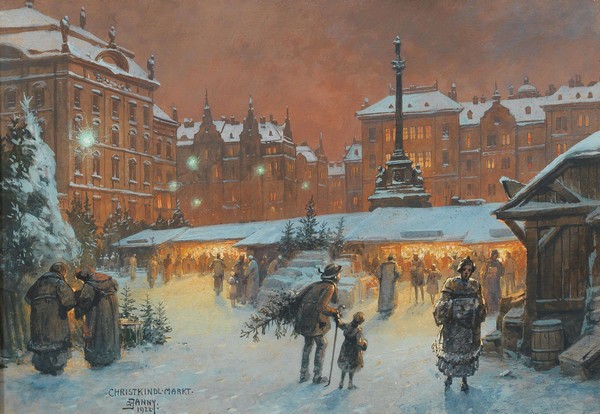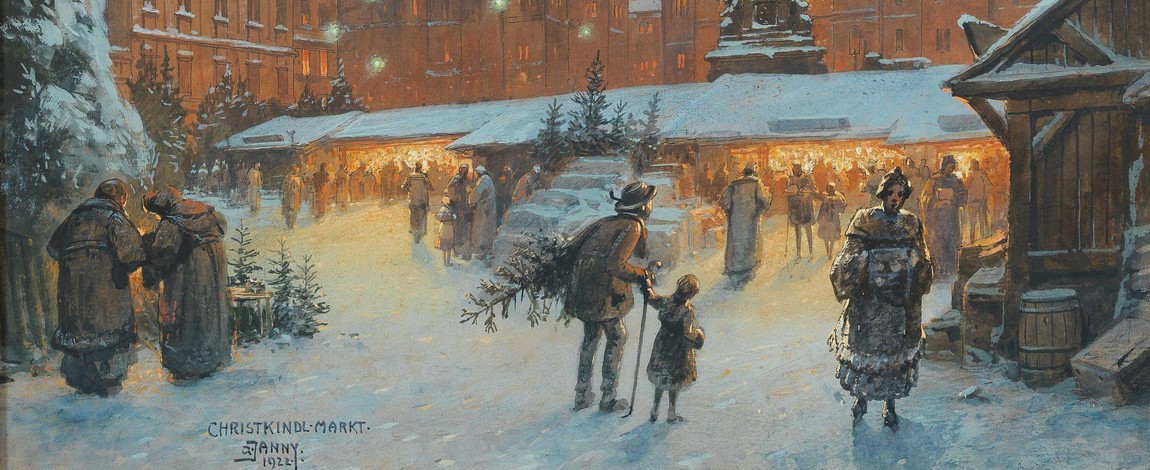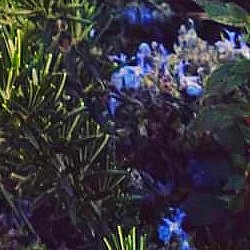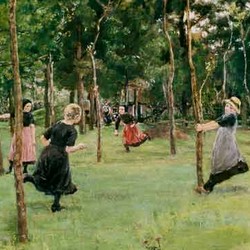
When we returned to school after the summer, my grandmother used to say: “In a few days, it will be Christmas”. And we used to say: “Oh, Granny, it's ages until Christmas!” For children, three months was a long, long time; however, my grandmother probably began to organize in her head the many big and small things that had to be prepared and considered. And one day, after a long, log time, an adult would tell us that it was Saint Lucy's Day, and kids would know that Christmas was coming. Saint Lucy, the bearer of the light, used to mark the beginning of the Christmas season. So we, the children, helped (it's a way of saying) decorate our home and set up the Nativity scene. If we had to replace a figurine, the victim of our clumsy hands, or if a glass ball fell to the ground (“didn’t I tell you not to touch them?”) we would go to the neighbourhood, or, on the weekend, to the Cathedral, to take a walk through the Fira de Santa Llúcia [the Fair of Saint Lucy], the most important Christmas market in Barcelona.
The Fira of Santa Llúcia was first celebrated in 1786, we are many generations of people from Barcelona who have made it a part of our Christmas traditions. In 1915, Josep Maria de Sagarra wrote a poem, Romanç de Santa Llúcia [Ballad of Saint Lucy], which transports us to the fair and brings us the smell of mountain in our city houses; Eduard Toldrà composed in 1924 a song from this poem that was premiered that same year at the Palau de la Música. Not in December, but in May. The song was sung by Emili Vendrell, one of the most famous singers at the time, accompanied on the piano by the composer, and it quickly became popular. Everyone sang it after Vendrell, both singers who used to sing Art Song and those who mostly sang opera; evidence that the Romanç de Santa Lucia is still very alive is that young singers continue to offer it in their recitals.
Many of my Catalan readers probably looked at the calendar today, December 13, Saint Lucy's Day (if you read this article on the day it is published) and hummed the first phrase of the song. They might not be aware that the song is from Toldrà or that the poem is from Sagarra, but it doesn't matter; I said it before, the best thing that can happen to a song is that it goes down from the platform and becomes a popular song, in the sense of being known and internalized by people. Today, Saint Lucy's Day, Christmas decorations arrive at Liederabend. Normally, the first Christmas song would have arrived next week, but, since it's December 13, we will listen to the Romanç de Santa Llúcia in a magnificent voice that we do not have many opportunities to hear here, that of Jaume Aragall; he will sing the orchestral version, with the Orquestra Simfònica de Barcelona i Nacional de Catalunya conducted by Salvador Brotons.
Perquè avui és Santa Llúcia,
dia de l’any gloriós,
pels volts de la Plaça Nova
rondava amb la meva amor.
Anem tots dos a la fira,
amiga, anem-hi de jorn,
que una mica de muntanya
alegri nostra tristor.
Comprarem grapats de molsa
i una enramada d’arboç
i una blanca molinera
i una ovella i un pastor.
Ho posarem, al migdia,
dins el nostre menjador,
i abans de seure a la taula
ens ho mirarem tots dos:
que una mica de muntanya
ens faci el menjar més dolç.
Perquè avui és Santa Llúcia,
dia de l’any gloriós,
tals paraules m’acudien
quan he vist la meva amor.
Since today is Saint Lucy,
day of the glorious year,
around the new square
I loiter with my love.
Let’s go to the fair together,
my friend, let’s go early,
so that a little bit of mountain
our sadness rejoice.
We will buy handfuls of moss,
and a branch of strawberry tree,
and a white miller,
and a sheep and a shepherd.
At noon, we will put everything
in our dining room
and, before sitting at the table,
we will both look at that all,
so that a little bit of mountain
makes our food sweeter.
Since today is Saint Lucy
day of the glorious year,
such words have come to my mind
when I saw my beloved.
(translation by Salvador Pila)

















Comments powered by CComment